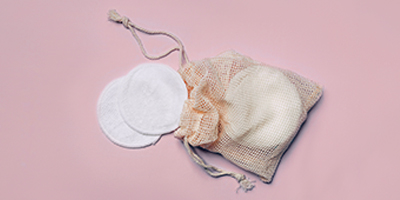Top 10 ways to be more eco-friendly at home
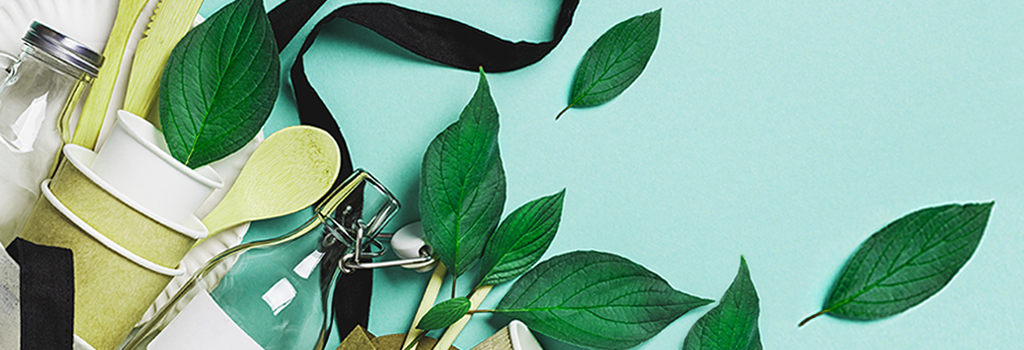
Many of us want to do our bit to help save the planet, and more and more of us are on the hunt for ways to live in a more environmentally friendly way. But where to start? Well…look no further than your very own home! Even little changes to the way you and your family live can have an impact on the environment.
There are plenty of things you can do to help reduce your carbon footprint and live a more eco-conscious lifestyle, from cutting down plastic usage and eating less meat, to composting and using eco-friendly cleaning products.
So, here are our favourite top 10 tips on how to be more eco-friendly at home…
1. Stop your food waste
If we told you that according to WRAP, 4.7 million tonnes of edible food was wasted in 2021/22 in the UK would you believe us? Sadly it’s the truth. But by thinking about the food we need to buy, and sticking to the essential items in our homes, we’d not only consume less, (helping our lovely planet in the process), but the average UK family household could also save around £1000 a year! Who’d say no to that?
There are many ways to reduce your food waste, including:
- Meal planning and writing a shopping list (and sticking to it!)
- Storing and freezing food correctly so it lasts longer
- Having a clearly organised fridge so that older food gets used first
There are also loads of tricks involving food you’d typically think of as rubbish and throw away. Before binning anything, have a search online for creative recipes you could try out, like making your own crisps with vegetable peelings!
2. Cut out plastic
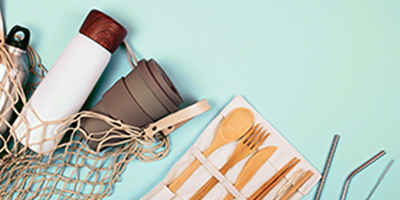
Have a quick look around your home and you’ll most likely find plastic galore. It’s everywhere! The WWF estimate a whopping 14 million tonnes of plastic ends up in our oceans every year, and while cutting out plastic completely might seem like mission impossible, there are lots of small changes we can make in our day-to-day lives to make a difference. Single-use plastic is one of the planet’s biggest enemies, so carrying a reusable water bottle and coffee cup, ditching cling film and saying no to plastic straws are all simple starting points to help reduce plastic at home. Give them a go – it’s not as hard as you might think!
Pop to your nearest zero-waste shop too to see what alternatives are on offer there. Take reusable containers with you and stock up on pulses, grains, and nuts as well as cleaning products, toiletries and more. Not only will you do your bit to help the planet, but you’ll also notice a lot less clutter and rubbish around your home – win win!
3. Turn it off!
The Energy Saving Trust has lots of great suggestions on saving energy around your home. One of the easiest changes you can make is turning off things like your lights, taps and some electronics (like your TV, phone charger and computer) when they’re not in use. We mean properly turned off at the wall, not just on standby! Reducing your electricity usage could also save you money on your bills and keep certain products alive and kicking for longer. But most importantly, it’ll benefit the environment, as saving energy helps to reduce carbon emissions and other harmful greenhouse gases.
4. Wipe away those face wipes
The Marine Conservation Society did a study that found 19 wet wipes per 100m beach around Britain’s coastline… and there are thousands of miles of coastline, so that soon adds up! Those that are flushed clog up our pipes and sewers, while those that are thrown in the bin often end up in landfill or get incinerated, contributing to carbon emissions.
There are loads of alternatives to face wipes, like reusable bamboo pads and washcloths, that you don’t need to throw away after using them once. These can be much more cost-effective, especially as once you’ve bought them you won’t have to replace them for a long time. So, you can take your makeup off with zero guilt and your face (and your planet!) will thank you for it.
5. Start a compost pile
If you’ve got a garden or outside space, like an allotment, have you thought about composting? Fruit and vegetable peels? Compost them. Coffee grounds? Throw them on too. Eggshells? Yes, keep them coming! Not only is a compost heap super easy to start, it reduces the amount of rubbish you throw away every day and it can be used as a fertiliser in your garden to keep soil, trees and plants looking blooming lovely! You can find out how to start a compost heap here.
6. Consider eating less meat
We know not everyone can give up meat altogether, but eating less, or different meats can have an impact on your carbon footprint. This is because the meat industry is a huge contributor to climate change. Cutting down your meat consumption by 2-3 days (that’s around 1 meal each day) isn’t hard when you start looking at vegetarian alternatives, like veggie pasta dishes, veggie curries and veggie stir fries. It gives you the chance to get more creative in the kitchen too!
7. Grow your own!
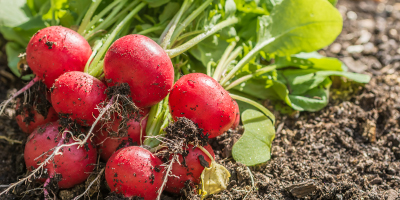
There’s little more satisfying than growing your own food, knowing you planted the seed that became that juicy tomato or that roast potato! As well as being good exercise and wonderful for the soul, gardening and growing your own fruit and veg has other benefits. It helps to save you money and gives you the freshest and most nutritious ingredients. It could also be great for the environment if you’re buying fewer products that have been transported across the world using fossil fuels in the process.
8. Choose eco-friendly products
A lot of the products we use around the home, from our cleaning products to our toiletries, contain toxic chemicals that can be harmful to us and to our environment. What’s more, they’re often sold in single-use plastic packaging (see tip 2!). By choosing eco-friendly and biodegradable products made from natural ingredients, you’ll be helping to remove these types of chemicals from your home, and if you try and use products that have packaging that is zero-waste or made from recycled materials – even better!
9. Change to LED light bulbs
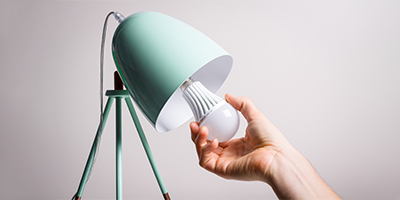
Do you know how much an average home’s electricity bill goes on lighting? Believe it or not the Energy Saving Trust says it’s 11%. Energy efficient bulbs use approximately 70-80% less electricity than the equivalent traditional bulbs. Not only that, but LED bulbs can also last over 5 times longer than a halogen bulb too, so by switching to LED you’ll consume less energy (which the planet will thank you for) and you’ll save money too! They come in a huge range of designs, brightness, and colours, so you can mix and match in different rooms around your home to get the mood just right.
Smart light bulbs are another great idea. You can programme them to turn off when a room is empty via an app, which could save you even more energy.
10. Repurpose and upcycle, before recycling!
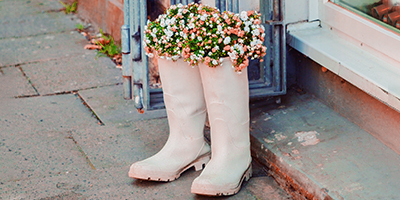
We all have stuff in our home that no longer serves a purpose. But before you decide to recycle it, or worse still, throw it in the bin, think about repurposing and upcycling. It may take some time, and you may need to learn a bit more DIY while you’re at it, but there are huge benefits to doing this. You’ll be reducing waste and therefore helping the environment, and it’ll also give you the chance to get creative and learn some new skills!
There are loads of ways to upcycle old pieces of furniture and give them a new lease of life, whether that’s painting it your favourite colour or adding new features like fancy handles or quirky legs. You could also transform tins and jars into plant pots, old crates, and doors into new pieces of furniture, and old ladders into stylish shelving units… The sky’s the limit!
A few small changes really can make a big difference. And don’t forget to check you have the right level of contents insurance in place to protect your eco-friendly home! Check out our home insurance section for all the information you need.
You might also be interested in...

Be prepared for when it hammers down
The last thing you want to find after a storm is your barbeques fallen over and broken a chair, or the trampoline’s now next door.

Rain on the roads? Our tips could help you loads
3 things it’s well worth checking before you head anywhere – the weather, the traffic and alternative routes.

